The Psychology of #FakeNews
And what tech can do about it
@cecycorreaFuture of Fake News
Site done by Radiolab
Project Voco
Audio software from Adobe that lets editors modify audio.
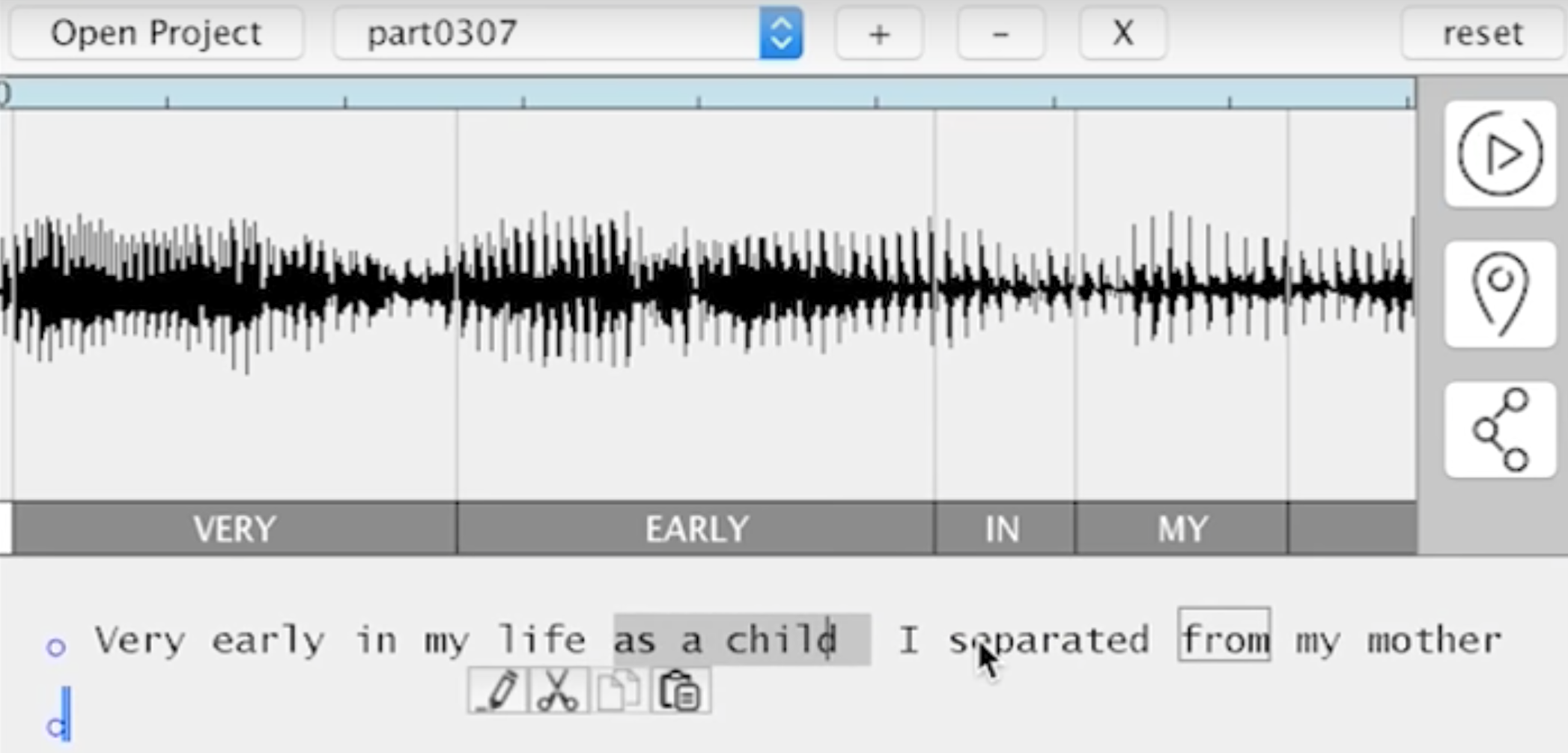
This is still the future...
Voco has not been released...yet
The present
The bubble is powered by social media™
Selective feeds
👉Blocking
👉Link previews
👉Clickbait
👉Coverage is based on what is most likely to get a click
Established outlets

source: @JohnLegum
Fake news site
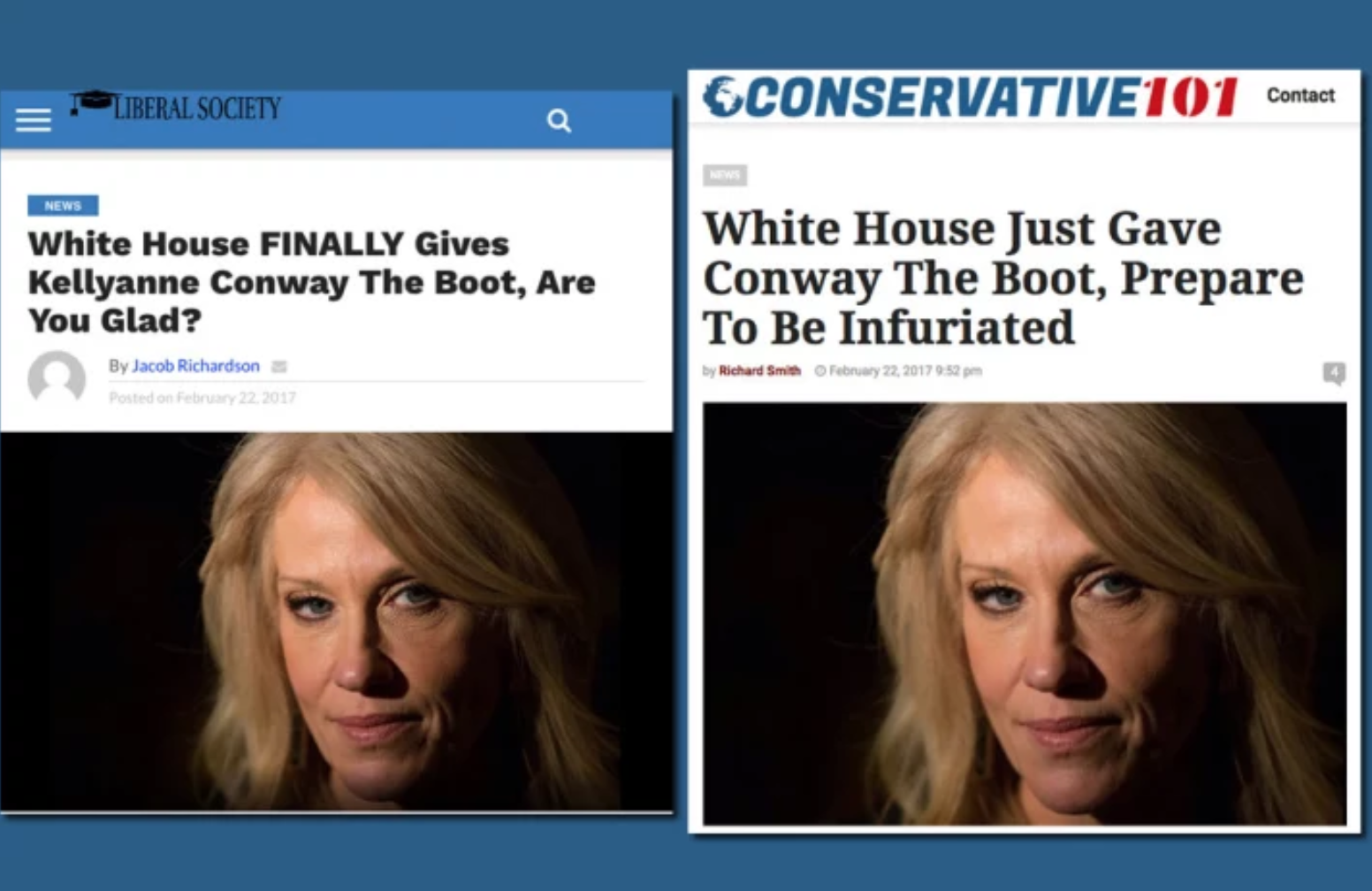
source: buzzfeed
Fake news has been around for a long time

clickbait == yellow journalism
est. 1890s
The psychology of the bubble
System 1 / System 2 thinking
source: Thinking Fast and Slow, Daniel Kahneman
System 1
Fast, automatic, intuitive.
☝️Beliefs
System 2
Analytical, reasoning
It's hard to process information that differs from our beliefs
The Knowledge Illusion
How much do we understand?
We are wired to have shallow knowledge
As people invented new tools for new ways of living, they simultaneously created new realms of ignorance; if everyone had insisted on, say, mastering the principles of metalworking before picking up a knife, the Bronze Age wouldn’t have amounted to much.
Study: Draw a bike
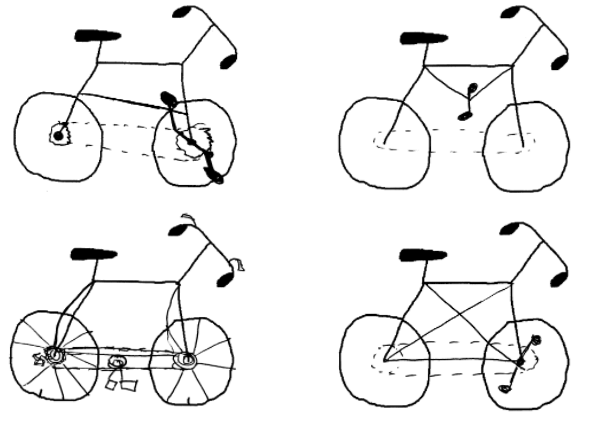
- How well do you know bikes?
- Draw a bike
- How well do you know bikes?
As a rule, strong feelings about issues do not emerge from deep understanding... but it deepens as more people believe this together
source: The Knowledge Illusion
Information Diet
source: Clay Johnson
Information you agree with == stimulating
🍕deliciousInformation that is challenging == not stimulating
🥗 not yummyTL;DR
- Deep beliefs don't require deep understanding
- Beliefs are empowered if they are experienced in a group
- We are not likely to seek this challenging information out (requires System 2 thinking)
- Easier to consume information we agree with (junk food is delicious)
That's how the bubble is made
So, is it tech's fault?
No, because we are wired to think this way
Yes, because tools reinforce the behavior
[t]he Internet was done so well that most people think of it as a natural resource like the Pacific Ocean, rather than something that was man-made. When was the last time a technology with a scale like that was so error-free?
— Alan Kay
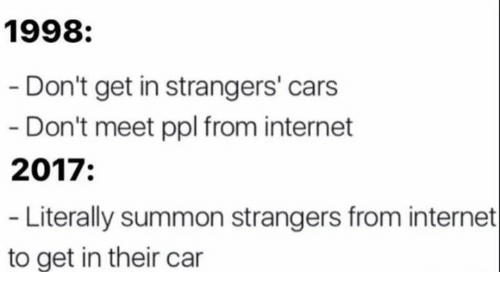
What can we do?
Human solutions
Media and tech literacy
"People are smart enough to know it's fake"
Tech solutions
Perspective API
[the] API uses machine learning models to score the perceived impact a comment might have on a conversation.
source: perspectiveapi.com
Outside the Bubble
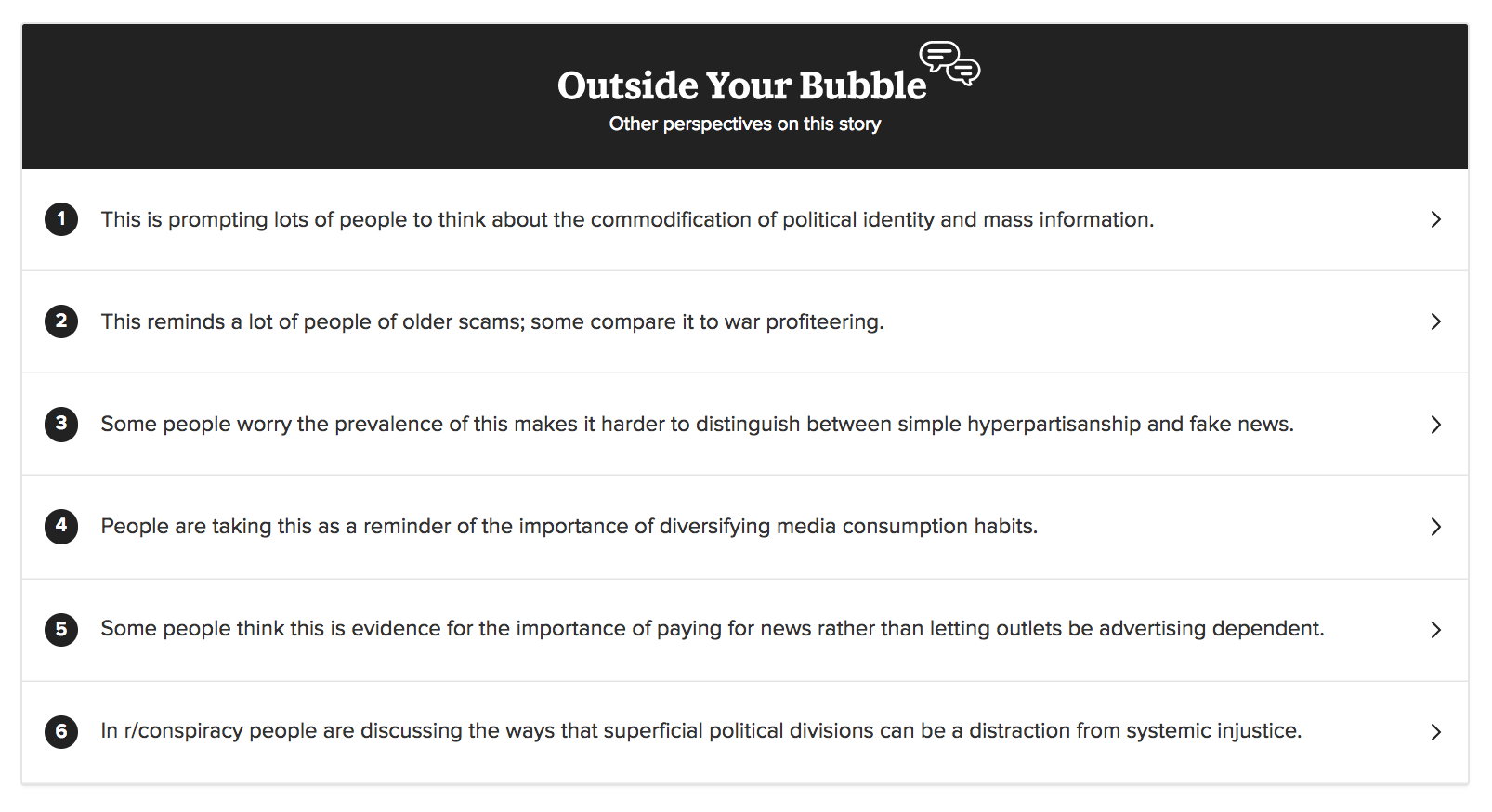
Blue Feed, Red Feed
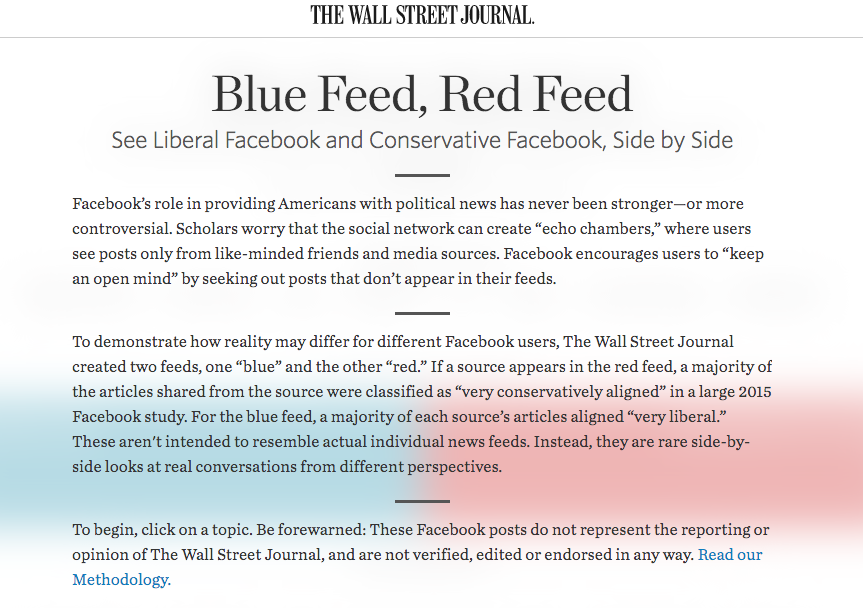
Knight Foundation
Sponsoring more projects that tackle Fake News
source: knightfoundation.org
Thinking more about psychology and behavior surrounding the tech we build
Disruption is fast
sustainable, long-term change takes time
Thank you!
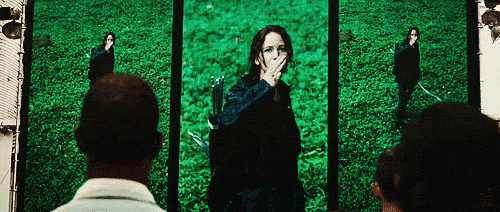
slides
cecy.co/fake-news-psych